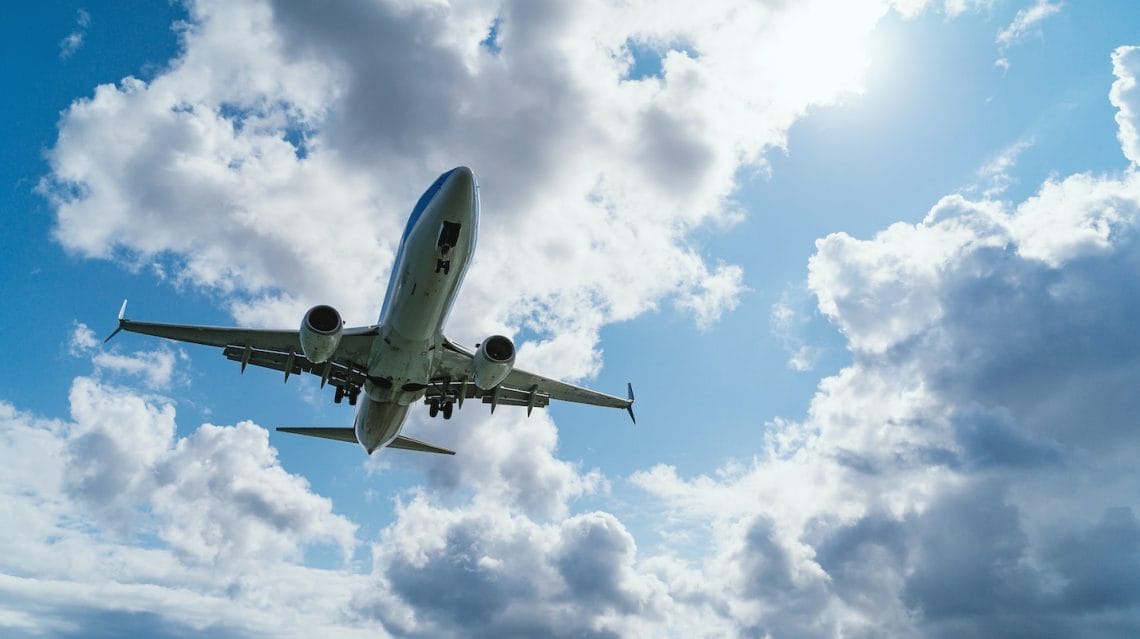With the importance of reducing greenhouse gas emissions, and COVID-19 reducing aviation numbers dramatically, the current moment is seen as a unique chance to shift business travelling behaviour towards more sustainable choices. On Friday 4th December, University College London’s (UCL) Behavioural Innovations Team launched a Nudgeathon, a unique event built around sharing ideas and developing innovative solutions to an important problem, in the incredibly short timeline of 48 hours. Three teams of students, from a variety of academic backgrounds, were briefed on this opportunity for positive change in business travel, before being challenged with developing and presenting an effective idea for a behaviour change intervention.
The challenge was set by ideas42, who drew from their own experience in environmental issues and behaviour to deliver the brief. With this in mind, the three participating teams set out to decide how behavioural science can best address the challenge. Their interventions had to focus on the structure, incentives and contexts that shape behaviour, and they had to determine whether to target the problem at the policy level; business, governance and leadership level; or the individual day-to-day level. From there, over the course of a weekend, the students designed their solutions, and then presented in a finale on Monday 7th December in front of a panel of behavioural science experts.
Thinking creatively about sustainability during the time of COVID-19 and beyond, and applying a behavioural lens to the approach, are important steps to addressing climate change. In that vein, we’re sharing brief descriptions of each proposed intervention, written by the three teams, to contribute to the ongoing discussion of sustainable behaviours going forward:
Leveraging a new social norm
By “Team Hive” (Julien Maxime Antoine Guerville, Pierce Gately, Jahnina Carla Queddeng, Michi Aneez)
Tagskryt, or train bragging, is a trend newly democratized by Greta Thunberg, which consists of travelling around only using trains and glorifying train travel’s benefits on social media. If this trend could rise, it could drastically change business travel and its environmental impact. Employing nudges and the EAST model, we can redesign old mentalities to prioritize greener methods of transport, through a poster campaign and changing the ticket booking process. Our plan also includes working with companies to create a workplace committed to helping people make the greenest travel decisions, using forms, and rebuilding the work environment with cues, in the hope of stimulating these habits.
Focusing on company travel and goal-setting
By “Team Green Chameleon” (Elisa Paka, RiinuPae, Hendrik Leenders, Mohamed Al-Ali)
While severely impacted by the COVID-19 pandemic, domestic business travel by plane in the UK remains popular. Despite alternative modes and high awareness of the environmental impact, there is little willingness to choose rail over air travel. We propose a holistic intervention aimed at companies who seek to reduce their carbon footprint. First, we lay out a travel policy which focuses on removing barriers and introducing incentives that promote alternative choices to flying. Next, this policy is translated into a booking process using travel management software. Lastly, these changes are introduced by a pledge taken by senior leaders to set goals and address cultural norms.
Creating new avenues for more sustainable conferences
By “Team Urban Foxes” (Robin Kwon, Sana Fasihi, Tash Perros, Cagla Kaya)
Over 67% of companies attend conferences solely by travelling there. Ouridea is to inform businesses and attendees about how to attend conferences in a more sustainable way. We aim to persuade companies to run hybrid events in regions that are way away from the primary location of the event. Thus, people from the same area would gather locally and be connected to the rest of the conference virtually. As a result, this would reduce the aviation between the busiest routes within the UK. We designed our intervention bearing in mind the convenience of virtual events, and the invaluable face-to-face interaction that promotes networking.
All three ideas promised new and unique avenues of opportunity to help maintain the reduced domestic flying resulting from COVID-19. After deliberation, our judges named Team Green Chameleon as the victor, courtesy of their comprehensive approach to their behaviour change solution, presenting an effective and well-considered solution to the challenge. Their solution particularly showed a depth of behavioural science understanding, from the big-picture level down to small contextual details, and was ambitious in the scope of business travel it attempted to address.
We’re grateful to all the students who took part and shared enthusiasm for behavioural science, innovation, and sustainability. Dr Umar Taj at Nudgeathon™ provided guidance, and the judges were: Co-Founder of Salient Madeline Quinlan, VC of Ogilvy Rory Sutherland, DoT’s Principle Behavioural Scientist Pete Dyson, Associate Professor at UCL’s centre of Behaviour Change Paul Chadwick, CEO of Nickels Joseph Garcia, and ideas42’s own Vice President Erin Sherman and Senior Associate Lee-Sien Kao.
To join the conversation on environmental sustainability, tweet at us at @UCLBIT and @ideas42.



